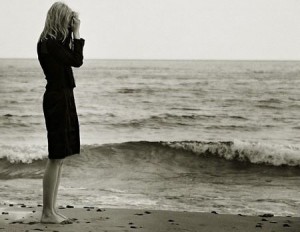“Stop Being a Victim!”
 The term victim has become a dirty word in some circles.Should someone claim they have been injured or victimized in a relationship—especially if their wounds are not physical, they are met with shaking heads or raised eyebrows.
The term victim has become a dirty word in some circles.Should someone claim they have been injured or victimized in a relationship—especially if their wounds are not physical, they are met with shaking heads or raised eyebrows.
I cannot tell you how many times, when I was reeling in shock after discovering I had been living a lie, I was advised (often with the best intentions) to “stop being a victim!”
Quietly reminded, “there is no such thing as a victim;” I was accused of not taking responsibility for my part, suspected of wallowing, of staying stuck in a “poor me” mindset, of character assassination for suggesting I had been harmed, for downplaying my flaws, for emotional instability, and, above all, for taking satisfaction in forming a new and exciting identity as a victim!
I was highly susceptible to believing these disdainful attitudes because for most of my life, I, too felt this way about victims. I always considered myself a resilient person who bounced back with ease from life’s slings and arrows. I could not understand why others did not do the same. That is, until being abandoned fractured my world; and, despite all my efforts, I could not shake the feeling of shame at having been victimized. It took a long while before I could stop blaming myself. But now I believe I was right and want to challenge the prejudice we have against victims.
We can see how absurd the belief in “no victims” is when we consider natural disasters, war, genocide, rape, epidemics, children abandoned or born into poverty or abusive families. Yet, we still rationalize misfortune when it is close to us, blaming the victim for their plight—even if we clothe our blame in concepts such as sin, karma or the law of attraction.
Victims Reveal our Vulnerability
I began to wonder why we are so anxious to blame victims. To be a victim implies helplessness and acute vulnerability. Some do adopt a kind of permanent “victim identity” that causes us to be suspicious of true victims. But, primarily, by denying victim status, we attempt to banish our own fears of harmful events.
We like to believe we live in a predictable world, a safe and moral universe where our actions have consequences. If only we live, think and act well, terrible things won’t happen to us. “What goes around comes around” gives us a sense that we have some control over our destiny. That misfortune is random and can happen to anyone at any time is terrifying. Bad things happen to good people.
When we blame the victim, it offers us a last grasp at control. If they had behaved differently (like us), this bad thing would not have happened to them. At the deepest spiritual levels there may be some truth that the victim of abuse, accident, disease, or crime shares responsibility for his or her suffering. On the human level, however, when we or someone close to us is suffering, these attitudes not only cover fear of our own powerlessness, but shut off compassion.
Facing the Truth Brings on an Existential Crisis
When our reality has been shattered, until we accept the totality of the event—including the victimhood, helplessness and powerlessness—we cannot fully grieve what has been lost, nor can we fully heal. As I explore in my book, survivors of misfortune, or mistreatment at the hands of others, need to claim the truth of being victimized, and face the existential crisis it initiates, to begin to free themselves of what happened.
When life deals us or someone we love a cruel blow, it shatters a certain innocence and trust. We are forced to grapple with questions of good and evil. We have to dig deep inside and dispel many illusions to find the answers.
I learned that acknowledging “I am a victim” could be a statement of profound courage, compassion and insight. We need to stand on the firm ground of the truth to find our way to the strength of spirit that can endure regardless of what happens.
Adapted from Love and the Mystery of Betrayal: Recovering Your Trust and Faith after Trauma, Deception, and Loss of Love —now available in print and ebook.
The post “Stop Being a Victim!” appeared first on .



